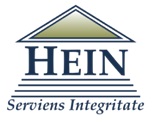Keywords
antitrust damage, consumers, passing-on of overcharges, Lithuania, private enforcement of competition law, antitrust damage claims, Directive on antitrust damages actions, calculation of damages
Abstract
The article focuses on the concept of passing-on of overcharges and the peculiarities of its regulation by the Damages Directive. The Damages Directive obliges Member States to ensure that the defendant in an action for damages may invoke the passing-on defence. Moreover, the Directive establishes the new framework and the main principles that govern the application of the passing-on defence. The national case law on passing-on is very insignificant in Central and Eastern European countries and many questions are expected to be raised in the courts of the CEE Member States. While discussing the concept of passing-on in the Damages Directive, a lot of emphasis should be paid to the issue of causation. Causation will definitely be the subject of most of the questions in cases when an indirect purchaser will bring a claim for damages. Causation may be tricky when an indirect purchaser claims it suffered an ‘overcharge harm’ because of passing-on. In most cases, the issue of causation will be decided mainly by national courts based on national procedural rules. Depending on the situation, passing-on may be used as a basis for the claim (as a ‘sword’) or as a defence (as a ‘shield’). It could be used as a basis for the claim by an indirect purchaser, in case s/he has suffered any harm because of the illegal actions of a cartelist or a dominant company. At the same time, it could be used as a defence by the infringer against a claim for damages. The article also analyses the specifics of the implementation of the Directive into the national laws of CEE Member States.
Recommended Citation
Moisejevas, R. (2017). Passing-on of Overcharges and the Implementation of the Damages Directive in CEE Countries. Yearbook of Antitrust and Regulatory Studies, 10(15), 133-146. https://doi.org/10.7172/1689-9024.YARS.2017.10.15.7
First Page
133
Last Page
146
Page Count
13
DOI
10.7172/1689-9024.YARS.2017.10.15.7
Publisher
University of Warsaw







